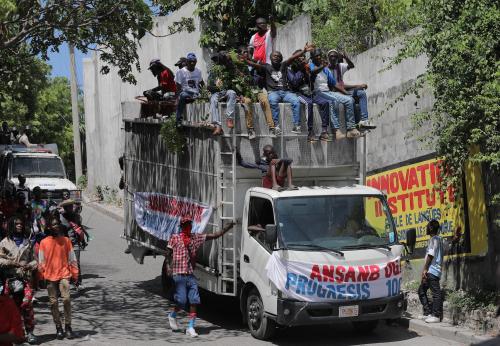2024
Despite the development of legal frameworks and institutions to prevent genocide, mass atrocities and widespread human rights violations, the international community has yet to put an end to these crimes. Millions of people remain vulnerable and many victims lack avenues for justice.
On April 28, the Brookings-Bern Project on Internal Displacement and the United States Institute of Peace (USIP) hosted a discussion on various strategies for preventing genocide and mass atrocities. The event featured a presentation on constructive management of community diversity by Francis Deng, the United Nations special adviser for the prevention of genocide and mass atrocities. Following his presentation, Julia Fromholz, director of the crimes against humanity program of Human Rights First, explored ways to better deal with the enablers of crimes against humanity. Finally, Lawrence Woocher, senior program officer with USIP’s Center for Conflict Analysis and Prevention, discussed the relationship between the prevention of violent conflict, and mass atrocities with the responsibility to protect. Fellow Andrew Solomon, deputy director of the Brookings-Bern Project, provided introductory remarks and moderate the discussion.
After the program, panelists took audience questions.
Strategies for Preventing Genocide and Mass Atrocities
Agenda
-
April 28
-
Introduction and Moderator
ASAndrew Solomon Former Brookings Expert -
Featured Speakers
JFJulia Fromholz Director, Crimes Against Humanity Program, Human Rights FirstLWLawrence Woocher Senior Program Officer, Center for Conflict Analysis and Prevention, United States Institute for Peace
-
